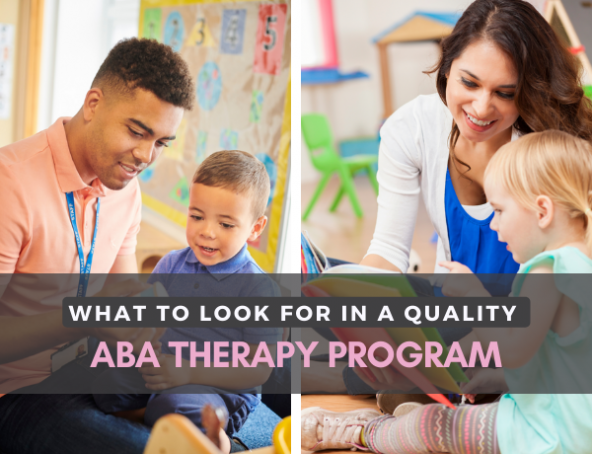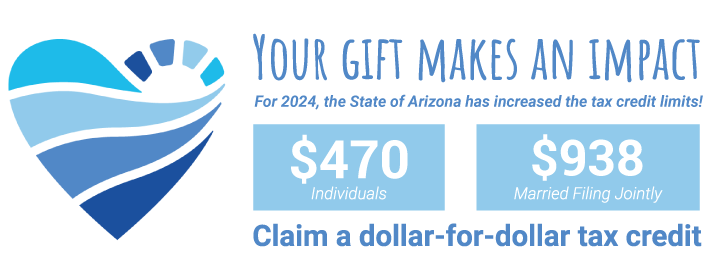What to Look for in a Quality ABA Therapy Program

Parents of children who have been diagnosed with autism are likely aware that Applied Behavior Analysis (ABA) therapy is a highly recommended type of treatment. Yet, choosing which program to enroll in has become an increasingly confusing task because of recent rapid growth in the ABA therapy industrybegan when the Behavior Analyst Certification Board (BACB) introduced a new certification for ABA Therapists in 2014, for the title of Registered Behavior Technician certification (RBT). The field also grew rapidly because of changes over the past decade to increase insurance coverage for ABA therapy.
Although the RBT credentialing has helped standardize training for ABA therapists, studies by the National Institutes for Health (NIH) have raised concerns about transparency regarding the qualifications of such technicians as well as the resulting quality of care that autistic children receive. The challenge is that an RBT certification represents a bare minimum of qualifications for an ABA therapist, and not every company invests the necessary resources to create a great program. As a parent, you may be wondering, how can I tell which ABA therapy companies provide high quality services? This blog should help you understand how to identify which ABA therapy programs are right for your child.
What Is a BCBA?
A Board Certified Behavior Analyst (BCBA) is a clinical professional who has accomplished the following ABA therapy training:
- Earned a graduate degree in a related field that includes coursework in ABA
- Completed supervised work experience in this field
- Passed the BCBA exam
- Been recertified every two years after the initial certification
BCBAs typically work as supervisors to therapy technicians rather than as direct care providers. However, not all BCBAs have thorough training and experience with autism spectrum disorder.
What Is an RBT?
A Registered Behavior Technician (RBT) is an ABA therapist that provides direct care under the supervision of a BCBA. RBTs are considered paraprofessionals and may not yet have a college degree. To become RBT-certified, individuals must pass a single 40-hour course, a background check, an in-person assessment, and a written test. RBTs must then receive a minimum amount of ongoing supervision by a BCBA to maintain their certification. Each ABA company must decide if their minimum qualifications for ABA therapists will be higher than the basic RBT requirements.
In theory, RBTs should also receive on-the-job coaching and training from BCBAs at the company they work for, but unfortunately that isn’t always the case. Yet, because they are technically certified, some parents may not look deeper than that in their research and may not realize how well or poorly qualified an individual RBT is. That is why looking at the organization and their ABA program as a whole is so critical.
How can parents evaluate the quality of ABA therapy programs at different organizations?
In order to be sure your child is receiving properly qualified, high-quality therapy, it’s important to do your research on the ABA programs available in your area with the goal of choosing one that is both reputable and family centered. Try to get information about the following criteria, both from the program’s website and from a conversation with their staff.
Experience and Leadership
To begin, find out what qualifications the organization’s senior clinical leadership staff have. They should be BCBAs with advanced training and many years of experience working with individuals of different ages and skill levels. It is important that they understand different treatment models and teaching approaches within ABA so that each individualized program fits what works best for that child. In general, leadership experience and expertise in program design and management are critical for senior clinical staff of any ABA program.
It is also worth looking at what other services the organization provides. Organizations that only offer ABA therapy may do it well, but they may have a limited view on what solutions are best for your child’s different needs. ABA is not the solution to everything. Organizations that pursue interdisciplinary care offer multiple services that create more of a holistic approach to supporting your child and family. Treatment also tends to be more effective when different types of therapists are collaborating and sharing information so that the approaches used are consistent and not confusing for your child.
Scope of Competence
As the field of ABA treatment has grown rapidly in recent years, researchers have emphasized the importance of assessing a BCBA’s scope of competence. In simple terms, scope of competence refers to which specialty areas a professional is qualified to practice, because of their advanced training and experience. Not all BCBAs are created equal – every school and training program is different, and some may have little to no focus on autism at all. All BCBAs are trained to analyze behavior, but usually autism organizations provide much of the training and continuing education needed to really understand ASD as a diagnosis, along with how to assess and treat a variety of autism-specific behaviors.
As you look at different ABA programs, find out what types of challenges they know how to treat, especially if your child has unusual behavior patterns or learning difficulties. Different programs may specialize in certain ages, teaching approaches, or behavioral techniques. There are also many specialized approaches within the field of ABA therapy, such as DTT, NET, PRT, PEAK, and so on. Each one works best for certain needs, but none are a one-size-fits-all. Ask if the program uses any specific approaches. The best programs usually have expertise in many approaches and combine different ones to customize a program that will be best for your individual child.
Accreditations
Accreditation is a way for healthcare providers to have their programs reviewed by an outside party to ensure they are meeting standard levels of best practices. Check if the ABA program you are considering is accredited by the Behavioral Health Center of Excellence (BHCOE), which is a best practice for ABA therapy. There are different levels of accreditation (3-year is currently the best). If the program is not BHCOE accredited, ask if they have worked with any other outside organizations that evaluate and assess the quality of their services.
Staff Qualifications & TRAINING
ABA therapy is only as good as the people doing it. Find out what the minimum qualifications are for direct care staff (ABA Therapists or Behavior Technicians), including education level and years of experience. Some organizations may only require a high school diploma, whereas others require related college coursework and previous autism experience. In all cases, ABA organizations must ensure that they have a very thorough training for new therapists and lots of ongoing continuing education after that. Ask about what your direct care staff’s initial training will look like and how much ongoing training and supervision they will receive. The best organizations usually offer a pathway for ABA therapists to become BCBAs through an in-house mentorship program, which helps with staff retention and long-term program quality.
Other Quality Indicators
If accreditations and qualifications are in order, find out how each ABA program approaches staffing needs and the number of patients or clients they are responsible for (their caseload). Ask questions about:
- Caseload size and supervision for BCBAs. How high the current caseload is will affect how much time and attention your child receives. Also consider if they have access to help to manage their caseload effectively. Do the BCBAs have a supervisor? Do they receive support from senior clinical leadership when they have questions or need guidance on which approaches are best to use for specific behaviors or goals? No one BCBA has all the answers, so it is important that they have access to expertise from more experienced clinicians on the team.
- Staff turnover rates. If RBTs or BCBAs feel overworked and under-supported by management, they may experience chronic dissatisfaction or burnout, which leads to a high turnover rate. All of the above can negatively impact the quality of care your child receives. Find out what the organization does to support the well-being and job satisfaction for their staff, so that your child is not constantly having to adjust to new therapists (or gaps in treatment) as a result of burnout and turnover.
- Quality of experience for children and families. Try to find information about what it’s like for other families that have enrolled in the ABA program you’re considering as a point of comparison. Things to consider include:
- Is the programming flexible enough to meet your child’s individualized needs and your family’s preferences?
- How are parents involved, trained, and informed in their child’s ABA therapy techniques?
- Are parents included when setting goals and choosing teaching strategies?
- Do the approaches being used make sense, and are they explained?
- Are clinical staff willing to answer your questions about therapeutic strategies?
- How are outcomes measured, to determine if what they are doing is working?
- How helpful are administrative staff with issues like billing, scheduling and navigating insurance benefits?
- If you are looking at a clinic-based program, is the environment enriching and inviting for children? Is your child likely to enjoy going to this clinic on a regular basis?
Nonprofit vs. For-profit
For families seeking help for their child, it may not seem important if the organization they get services from is nonprofit or for-profit. What matters most is the quality of service and whether or not it's affordable. However, the way an organization is structured can affect how decisions are made regarding your child’s services in the future. Here are a few things to be aware of:
- Nonprofits need to meet their financial obligations, but they do not exist to make money. Their primary focus is a mission to help people. They are more likely to be flexible to meet your family’s needs when the best solution is not as profitable as the standard model of care. Nonprofits are also involved in the local community and can help you connect with other resources that will help your child and family.
- For-profits may be financed by investors, or owners that are planning to sell the company to the highest bidder. In recent years there has been a huge wave of private equity investment in ABA companies. That has led to rapid expansion with more opportunities for families, but also a big focus on maximizing profit that doesn’t always put the needs of the child first.
How to Get Help Choosing an ABA Therapy Program for Your Child
If your child has ASD and you’re an Arizona resident, Arizona Autism United has a Family Support Team that offers free assistance to any family. Our Family Support Specialists are experienced parents that will take the time to understand your needs and recommend services that can help. AZA United is a leading local provider of ABA Therapy, both home-based and clinic-based, and a nonprofit organization serving the autism community since 2006. To get started, contact us.
Contact our Family Support Team if you would like to learn how to get started with ABA Therapy or any other programs and services that we offer. Our Family Support Team is always available to help and is available at no charge to all members of the autism and developmental disability community. Schedule a free phone appointment that works with your schedule by visiting azaunited.org/supportcall
You may also be interested in:
For more helpful resources and information, follow AZA United on social media:






